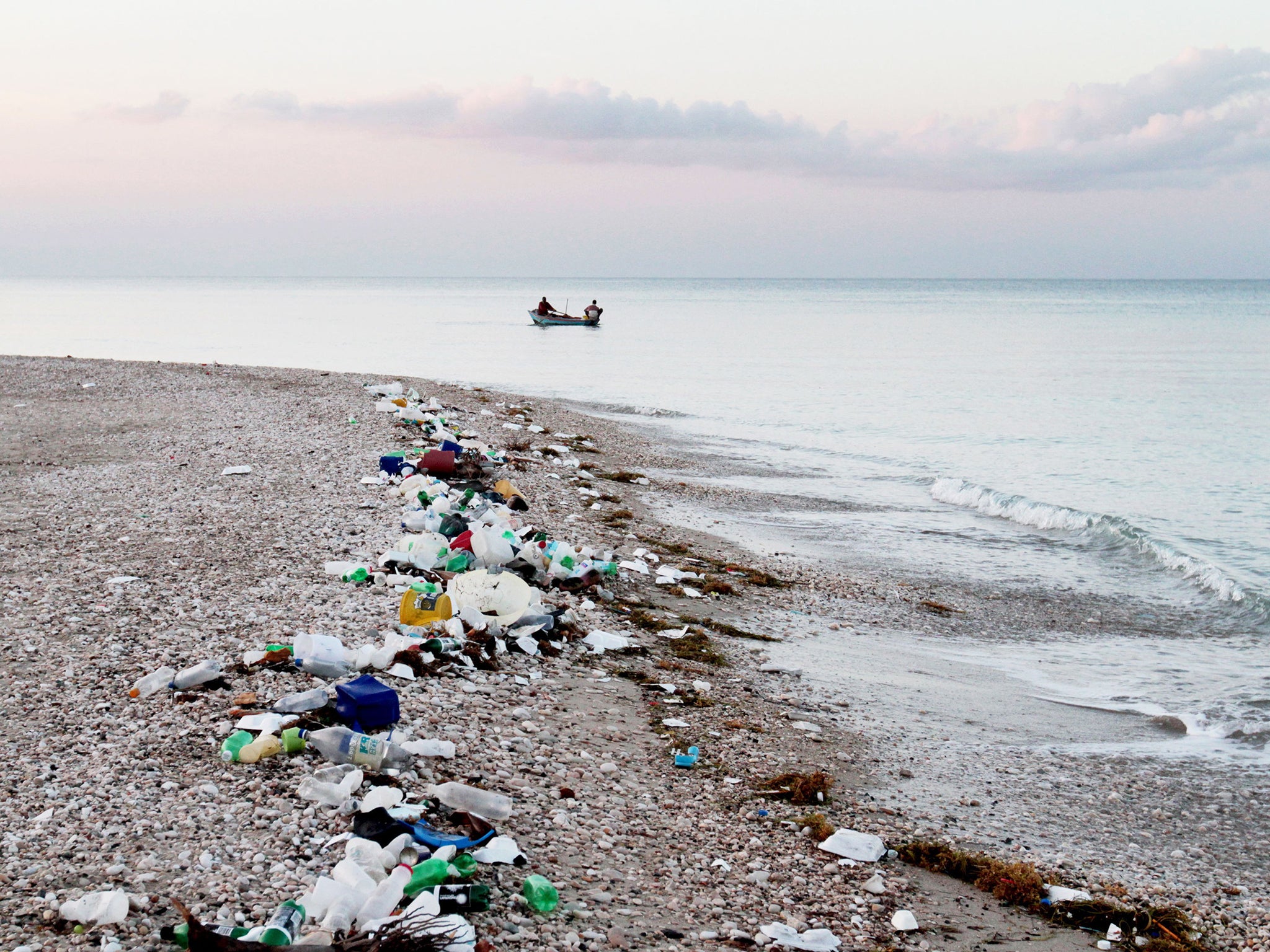World facing 'escalating ecological and human disaster', says Prince Charles as he launches major initiative on plastics
Oceans are expected to contain more plastics than fish by 2050

Your support helps us to tell the story
From reproductive rights to climate change to Big Tech, The Independent is on the ground when the story is developing. Whether it's investigating the financials of Elon Musk's pro-Trump PAC or producing our latest documentary, 'The A Word', which shines a light on the American women fighting for reproductive rights, we know how important it is to parse out the facts from the messaging.
At such a critical moment in US history, we need reporters on the ground. Your donation allows us to keep sending journalists to speak to both sides of the story.
The Independent is trusted by Americans across the entire political spectrum. And unlike many other quality news outlets, we choose not to lock Americans out of our reporting and analysis with paywalls. We believe quality journalism should be available to everyone, paid for by those who can afford it.
Your support makes all the difference.The Prince of Wales has urged the world to tackle the "escalating ecological and human disaster" of plastics in the sea as he launched a competition with Dame Ellen MacArthur to find solutions to the problem.
Charles has joined forces with the famous yachtswoman to encourage scientists, entrepreneurs, retailers and industry figures to take up the double challenge of designing packaging that uses less plastic and is recyclable.
The Prince highlighted the problem of cheap and easy-to-produce plastic flooding the economy and ending up in the environment, causing "huge damage".
At the Saatchi Gallery in Chelsea, The Ellen MacArthur Foundation and the Prince's International Sustainability Unit (ISU) launched the New Plastics Economy Innovation Prize, which has up to £1.5 million in grants available to the winners.
In his keynote speech, Charles said: "As scientific consensus deepens on the impact of plastic waste on biodiversity, on the food chain and, dare I say it, on human health, it becomes ever more urgent that we find ways to deal with this escalating ecological and human disaster.
"With plastic being so cheap and easy to produce, it is little wonder that vast quantities flood our economy each year.
"Our ability to manage this flow, however, is struggling to keep pace and, alas, it is equally no great surprise that so much of our plastic waste is ending up in the environment.
"And because plastics are so extraordinarily durable, once they are in the environment that is where they stay, accumulating at an astonishing rate.
"This strikes me as a tragedy for two reasons. Firstly, because the loss of non-renewable resources from the system makes absolutely no economic sense; and secondly, because of the huge damage plastic pollution does to the environment, particularly the marine environment."
Dame Ellen's foundation has published a report with the World Economic Forum which claimed that by 2050, the oceans are expected to contain more plastics than fish, by weight.
Earlier this week it was reported Henderson Island, a tiny uninhabited coral atoll in the eastern South Pacific, is not only one of the world's most remote places but also one of its most polluted - with nearly 18 tonnes of plastic washed up on the outcrop.
The prize features two elements: a circular design challenge invites applicants to rethink how products can get to the consumer without generating plastic waste like wrappers, straws and coffee cup lids; while the circular materials challenge seeks ways to make all plastic packaging recyclable.
Entrants are competing for hundreds of thousands of pounds in grants and winners will enter a 12-month accelerator programme offering access to industry experts, commercial guidance and labs for testing and development.
The first winners will be announced later this year.
The Prince said the world needs to progress beyond a "take-make-and-waste" economy and should look to the natural world for a solution.
He said: "The natural systems upon which we rely so heavily for our survival are circular by their very design; they do not create waste, but only materials for regeneration and new cycles of growth."
Press Association
Join our commenting forum
Join thought-provoking conversations, follow other Independent readers and see their replies
Comments